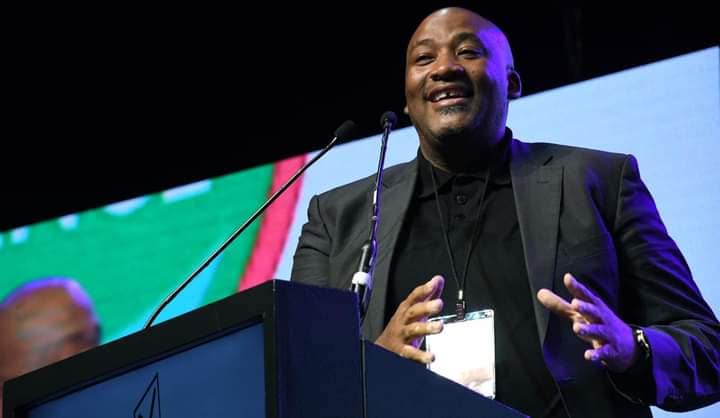PRIORITIZING TALENT: GAYTON MCKENZIE'S STANCE ON SUPER FAN TRIPS
This decision is likely to have a significant impact on the landscape of sports and arts funding. It may inspire other organizations and individuals to reconsider their funding strategies, focusing more on direct support for talent rather than peripheral activities.
EZOMPHAKATHI


PRIORITIZING TALENT: GAYTON MCKENZIE'S STANCE ON SUPER FAN TRIPS
Gayton McKenzie, a well-known entrepreneur, politician, and motivational speaker, who recently joined the Cabinet as Minister of Sports, Arts and Culture has made headlines with his recent statement about the allocation of funds for sports and arts. In a decisive move, McKenzie announced that he has stopped all trips for super fans, highlighting the financial struggles faced by athletes and artists. His decision reflects a shift towards prioritizing those directly involved in these fields over their supporters.
THE STATEMENT
McKenzie's statement reads:
"I have stopped all trips for super fans, we have athletes & artists who are struggling to raise money to attend sporting events and exhibitions, how do we justify paying for fans? We shall no longer be paying for these trips and will use that money where it’s needed the most."
This declaration underscores a critical issue: the financial disparity between fans and the talent they support. By halting funding for fan trips, McKenzie aims to redirect resources to those who need them most—the athletes and artists themselves.
THE CONTEXT
In recent years, the world of sports and arts has seen a growing trend of super fans, who are often financially supported to attend events, boosting morale and providing enthusiastic support. However, this practice has come under scrutiny as many athletes and artists face significant financial challenges in pursuing their careers. Travel expenses, training costs, and exhibition fees often present substantial barriers.
THE FINANCIAL STRAIN ON ATHLETES AND ARTISTS
Athletes and artists frequently struggle to cover costs associated with their professions. From travel expenses to participation fees, the financial burden can be overwhelming. Young and emerging talents, in particular, find it difficult to secure funding, which can hinder their progress and limit opportunities.
McKenzie's decision to stop funding super fan trips is a response to this financial strain. By reallocating funds, he aims to provide direct support to those who are actively contributing to the fields of sports and arts, ensuring they have the resources needed to succeed.
THE JUSTIFICATION
The central question McKenzie poses is one of justification: how can we justify paying for fans when the talent they support is struggling? This rhetorical question challenges the existing priorities and calls for a reevaluation of how funds are distributed within these industries.
By choosing to prioritize athletes and artists, McKenzie is advocating for a more equitable distribution of resources. His stance is that the individuals who dedicate their lives to these fields should receive the financial support necessary to pursue their passions and achieve their goals.
THE IMPACT
This decision is likely to have a significant impact on the landscape of sports and arts funding. It may inspire other organizations and individuals to reconsider their funding strategies, focusing more on direct support for talent rather than peripheral activities.
For athletes and artists, this move could mean increased opportunities and reduced financial barriers. It could allow more individuals to participate in events, competitions, and exhibitions, ultimately enriching the fields of sports and arts with diverse talents.
Gayton McKenzie's statement marks a pivotal moment in the discussion about funding in sports and arts. By halting trips for super fans and redirecting funds to those in need, McKenzie is championing a cause that seeks to empower athletes and artists. His decision underscores the importance of prioritizing talent and ensuring that resources are used where they are needed the most.
This move not only addresses the immediate financial challenges faced by many but also sets a precedent for future funding decisions, potentially leading to a more sustainable and equitable support system for the sports and arts communities.
